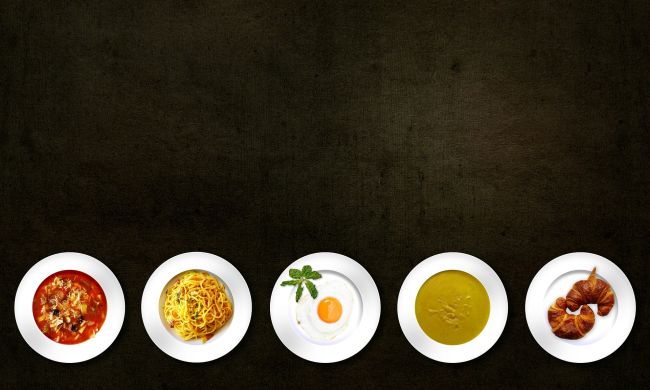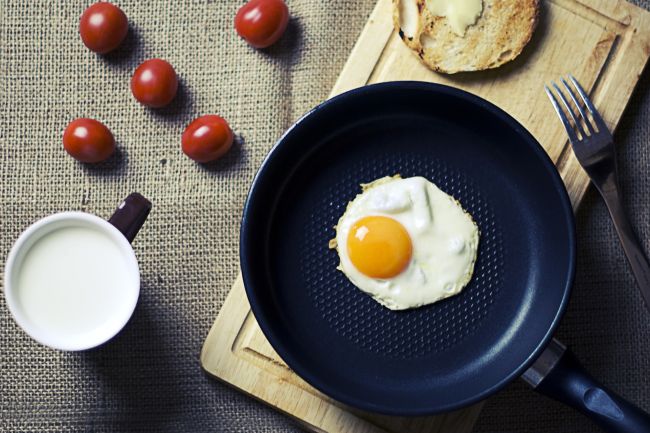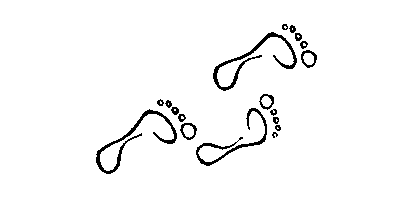How many meals a day should you eat to maintain a good figure, have a full tank of energy and quick metabolism? Some say you should eat 5-6 meals a day, others that only 3 is enough. Meanwhile, recent studies indicate that these are all false conceptions. You can go dizzy with all this. What to eat and how often? How about breakfast – can you skip it? And when to eat dinner? Let’s have a closer look.
HOW OFTEN SHOULD WE EAT
I don’t know if there’s one universal principle true for everybody – if so, then I don’t know it. Everyone is different – for one 3 meals a day will suffice, another needs 6. It all depends on how many calories you burn, on your daily rhythm and habits, and of course the composition of your meals. What’s most important, is to match the quantity and quality of your meals so as to provide the appropriate amount of energy and the nutrients during the day.
Another key thing is consistency – a common mistake people eating 3 meals a day make, is not the very amount of meals, but that they eat irregularly. The body never knows when it’ll get another portion of the energy so it accumulates what it can „for a rainy day”. Mostly that’s why nutritionists recommend eating more often – it forces a regularity and nutrition awareness.
For athletes, the 5-6 meals system usually works best due to the need of pre- and post-workout meals and overall higher caloric demand. People who are not practicing sports can take advantage of this variant, but with 3 meals they can also eat right.
Advantages of 5-6 meals:
- constant and frequent energy supply
- with smaller meals there is less chance of overeating
- blood sugar level is maintained at the constant level and you don’t feel the need of snacking
- convenient with higher activity and caloric demand
Drawbacks of 5-6 meals:
- more time needed to prepare all the meals
- the need for good logistics (food containers) and time organisation to adjust to meal plan
- you adjust your body clock to specific hours
Advantages of 3-4 meals:
- less time spent in the kitchen
- better if you are unable to take a break every 2,5-3 hours
- convenient for people with lower caloric demand
Drawbacks of 3-4 meals:
- you need to control yourself not to snack between meals
- it’s harder to keep constant eating hours
- large meals can cause overeating and a feeling of heaviness
- you need to take better care of the quality of your food (e.g. low glycemix index) to extend the time the energy is released from food

DISTRIBUTION OF CALORIES
To distribute calories appropriately among meals, first you have to calculate your total caloric demand. You’ll find all the information how to do that HERE. Next, select the meal plan that suits your needs better and distribute your caloric demand according to the following guidelines:
Calorie distribution in 5 meals
- breakfast- 25% of daily caloric demand
- morning snack – 10% of daily caloric demand
- lunch– 35% of daily caloric demand
- afternoon snack– 10% of daily caloric demand
- dinner- 20% of daily caloric demand
Calorie distribution in 3 meals
- breakfast – 30-35% of daily caloric demand
- lunch– 35-40% of daily caloric demand
- dinner- 25-30% of daily caloric demand
TIME AND COMPOSITION OF MEALS
Once you know how many meals a day are planned and how many calories you need them to deliver, it’s time to select the appropriate composition of food. It is equally important, because with smaller amount of meals, they must be properly filling so that we can get to the next meal without the need to snack.
In case of people not practicing sports, the demand for carbohydrates, proteins and fat is distributed as follows:
- carbohydrates – 55-60% of daily caloric demand
- fat – 27-30% of daily caloric demand
- protein – 10-12% of daily caloric demand
In case of athletes, there is an increased requirement of carbohydrates, therefore the demand for individual components is as follows:
- carbohydrates – 60-63% of daily caloric demand
- fat – 25-27% of daily caloric demand
- protein – 12-15% of daily caloric demand
BREAKFAST:
Why: durign the night our body used most of glycogen and you need to replenish it in order to nourish the brain and muscles, stimulate the metabolism and the immune system. Eating a satiating breakfast inhibits the release of hormones responsible for hunger in the evening.
When to eat: As soon as possible after you wake up, preferably within 30 minutes. The prefect time is 07:00-08:00. During these hours the stomach is the most active in the morning.
What to eat: proteins + complex carbohydrates (+ portion of vegetables), eg. soft-boiled eggs and a slice of whole-wheat bread with cottage cheese and tomato, omelette with vegetables, oatmeal, oat bran pancakes with vegetables, plain yogurt with muesli.
MORNING SNACK:
Why: balances blood sugar, nourishes the brain and helps to maintain concentration, provides energy without burdening the digestive tract
When to eat: 2.5-3 hours after breakfast. The perfect time is 10:00-11:00
What to eat: carbs + dietary fiber (fruit), eg. shake/smoothie, rice cakes with peanut butter and apple, kefir/yoghurt with fruit
LUNCH:
Why: the main meal providing energy and balancing blood sugar
When to eat: 2.5-3 hours after morning snack. The perfect time is 13:00-14:00, not later than 16:00
What to eat: proteins + complex carbs (+ portion of vegetables), eg. wholemeal pasta with tofu and vegetables, brown rice with mushrooms and vegetables, buckwheat with cottage cheese and peas, whole wheat pancakes with spinach.
AFTERNOON SNACK:
Why: balances blood sugar, completes the missing nutrients
When to eat: 2.5-3 hours after dinner. The perfect time is 16:00-17:00.
What to eat: missing nutrients, eg. vegetables, nuts, yogurt.
DINNER:
Why: Dinner with complex carbohydrates soothes, calms and provides a good night’s sleep. The protein in dinner composition stops muscle catabolism after intensive efforts.
When to eat: At least 3 hours before bedtime. The perfect time is 18:00-19:00 – after this time the stomach slows down and other organs become more active (eg. heart or liver), which you’ll burden by eating late dinner.
What to eat: Complex carbs + vegetables (+ protein, if there’s a shortage), eg. wholemeal bread with vegetables, vegetable salad, omelette with vegetables, millet and vegetables.

GOOD PRACTICES
- Regularity is the key – no matter whether you consume 3 or 6 meals a day, eat them at fixed hours. The body, knowing when it gets the energy, won’t have to accumulate fat „for a rainy day”.
- Drink at least 1.5 liters of water per day for optimal hydration. You speed up your methabolism even more
- Choose complex carbohydrates – brown rice, coarse cereals, wholemeal pasta, wholemeal bread – these products provide a slow release of energy and give a feeling of satiety for longer
- Do not skip breakfast – it causes the activation of hormones that result in increased appetite for sweets in the afternoon and evening, which contributes to deposition of fat
- Chew each bite thouroughly – thanks to this all the nutrients are absorbet better and your digestive system has an easier job to do. In addition, when you eat slowly, you’ll feel that you’re full before overeating
- Try to eat dinner not later than at 19:00. If you must eat something after dinner, let it be lean protein (eg. plain yogurt or cottage cheese) – it’ll serve as material for muscle recovery instead of being deposited in the form of adipose tissue
- Listen to your body and do not attach firmly to eat always 3 or 5 meals a day.
- lunch and afternoon are snacks rather than full meals – they are intended to prevent eating between the meals and surges of insulin, but they are modest portions
- Remember about portion of vegetables or fruit to every meal – it is a rich source of vitamins, micronutrients and fiber
- Try to eat fruits before noon. In the afternoon, our metabolism starts to slow down and copes worse with simple sugars – at this time the vegetables are a better choice
- If you feel hungry between meals, drink a glass of water. Often that’s not a real hunger but a sensation caused by a decrease in blood sugar level, which causes a false feeling of hunger – usually passes after approx. 10 minutes.
If You find this article interesting, please share it using the social media buttons under the article. If you don’t want to share it, maybe at least like it? :-)
————————-
Sources:
Pitchford Paul, Odżywianie dla zdrowia (Healing with Whole Foods: Asian Traditions and Modern Nutrition(, Łódź, 2008, Galaktyka Sp. z. o.o.
Bujko Jacek, Podstawy dietetyki, Warszawa, 2006, Wydawnictwo SGGW
Ciborowska Helena, Dietetyka – Żywienie zdrowego i chorego człowieka, Warszawa, 2009, Wydawnictwo lekarskie PZWL



